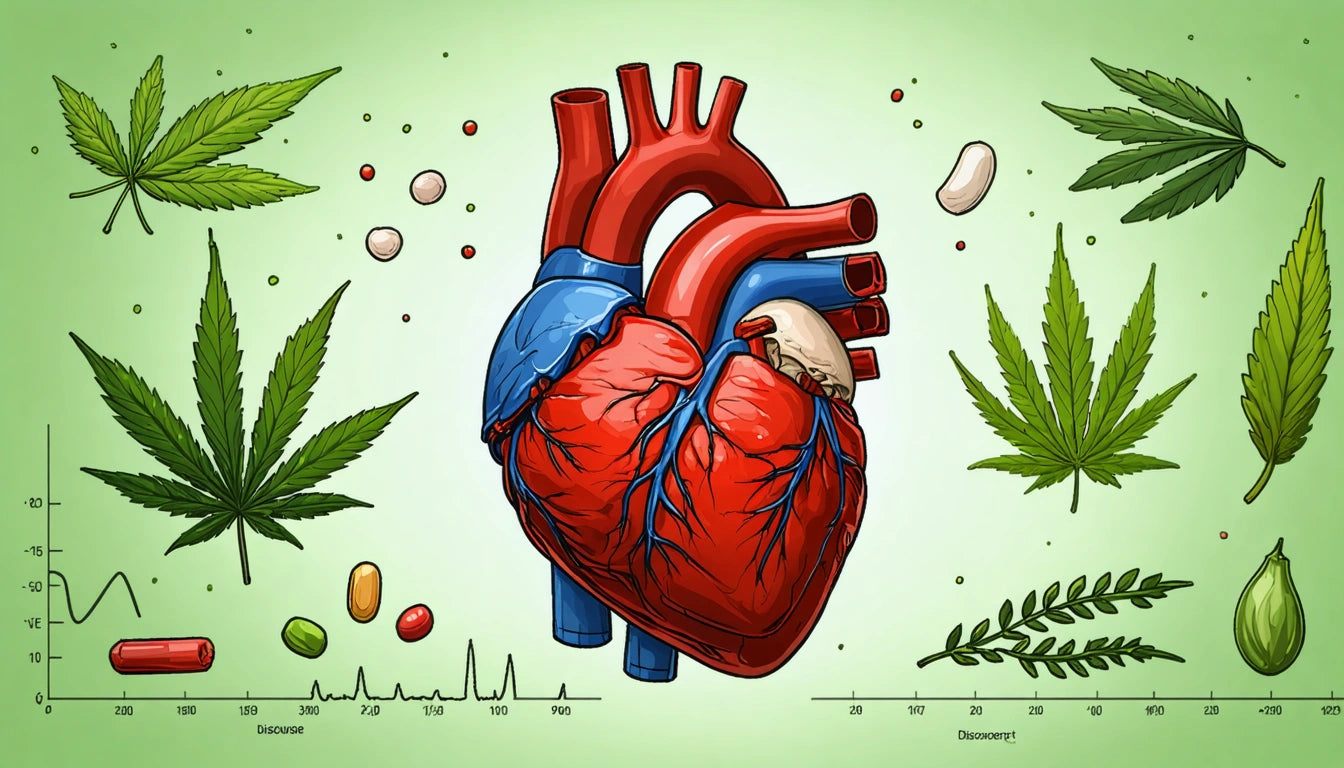Table of Contents
How Does Pot Affect Your Heart Rate?
Cannabis consumption can have significant effects on cardiovascular function, particularly heart rate. Understanding these effects is crucial for both recreational and medical users, especially those with pre-existing heart conditions. This article explores the relationship between cannabis and heart rate, examining whether pot increases, decreases, or otherwise alters cardiac function.
The Cannabis and Heart Rate Connection
The relationship between cannabis and heart rate is complex and depends on several factors including cannabinoid content, dosage, and individual physiology. Research on how cannabis affects heart rate shows that the primary psychoactive compound in cannabis, THC (tetrahydrocannabinol), typically increases heart rate shortly after consumption.
This cardiovascular response occurs because cannabinoids interact with the endocannabinoid system, which plays a role in regulating various physiological processes including heart function. When cannabis enters the bloodstream, it can trigger a sympathetic nervous system response, similar to a fight-or-flight reaction.
How THC Typically Increases Heart Rate
The question "does pot speed up your heart rate" can be answered with a qualified yes. THC often causes tachycardia, a condition where heart rate exceeds the normal resting rate. Studies examining THC's cardiovascular effects indicate that heart rate can increase by 20-50 beats per minute within 10 minutes of inhalation.
This increase typically peaks within 30 minutes and can last for up to 3 hours, depending on the potency and amount consumed. The physiological mechanism involves THC binding to CB1 receptors, which influences the autonomic nervous system's control over heart rate.
CBD and Its Potentially Opposing Effects
Contrary to THC, CBD (cannabidiol) may have different effects on heart rate. Some research suggests that CBD might actually counteract THC's heart-accelerating effects. The question "does pot lower heart rate" becomes relevant when discussing CBD-dominant cannabis products.
CBD has been observed to potentially reduce heart rate and blood pressure in some studies, though research remains limited. This cannabinoid interacts with different receptors than THC and may have anxiolytic (anxiety-reducing) properties that can indirectly affect heart function by reducing stress responses.
Balancing THC and CBD for Heart Health
Products with balanced THC:CBD ratios might produce less pronounced cardiovascular effects than high-THC varieties. For those concerned about heart rate increases, selecting products with higher CBD content may be advisable. Cannabis effects on blood pressure are similarly nuanced and interconnected with heart rate changes.
How Consumption Methods Impact Cardiovascular Effects
The method of cannabis consumption significantly influences how pot affects heart rate:
- Inhalation (smoking/vaping): Produces rapid onset of effects, including quicker heart rate increases
- Edibles: Results in delayed but potentially longer-lasting cardiovascular effects
- Tinctures/oils: Offers more controlled dosing that may help manage heart rate responses
- Topicals: Generally produces minimal systemic effects on heart rate
Safety considerations are paramount when consuming cannabis, especially for those with heart conditions. Our secure packaging solutions with child-resistant features help ensure that cannabis products remain safely stored and inaccessible to children while allowing adults to consume responsibly.
Managing Cannabis-Induced Heart Rate Changes
For those who experience uncomfortable heart rate increases after cannabis use, several strategies may help:
- Start with lower THC doses and gradually increase as tolerance develops
- Choose strains with higher CBD:THC ratios
- Stay hydrated before, during, and after cannabis use
- Practice relaxation techniques if anxiety about heart rate creates a feedback loop
- Avoid combining cannabis with stimulants like caffeine or certain medications
Understanding and managing increased heart rate from cannabis use involves recognizing that while the sensation may be uncomfortable, it's typically not dangerous for healthy individuals. However, those with pre-existing cardiovascular conditions should consult healthcare providers before using cannabis.
Current Research and Recommendations for Heart Health
The research landscape regarding cannabis and heart health continues to evolve. While acute increases in heart rate are well-documented, the long-term cardiovascular impacts of regular cannabis use remain under investigation. Some studies suggest potential concerns for individuals with heart disease, while others indicate possible therapeutic applications for certain cannabinoids.
Current medical recommendations suggest:
- Individuals with diagnosed heart conditions should consult healthcare providers before using cannabis
- Those who experience severe or prolonged heart palpitations after cannabis use should seek medical evaluation
- Regular cannabis users should include cardiovascular health in routine medical check-ups
- Older adults should exercise particular caution as age-related cardiovascular changes may increase sensitivity to cannabis effects
As cannabis legalization expands, more comprehensive research will likely emerge, offering clearer guidelines for safe use relative to heart health. For now, moderation, awareness of individual responses, and informed product selection remain the best approaches for minimizing potential cardiovascular risks while using cannabis.











Leave a comment
All comments are moderated before being published.
This site is protected by hCaptcha and the hCaptcha Privacy Policy and Terms of Service apply.